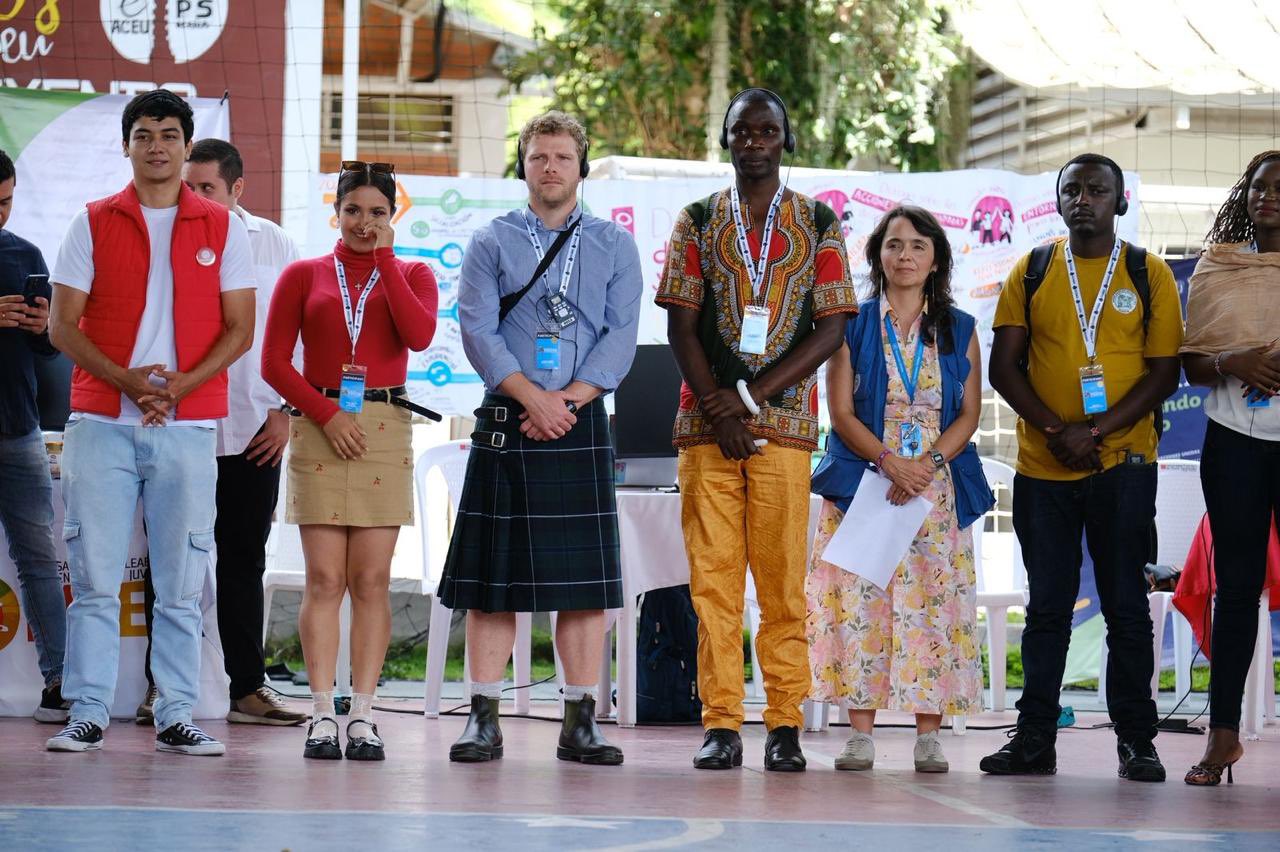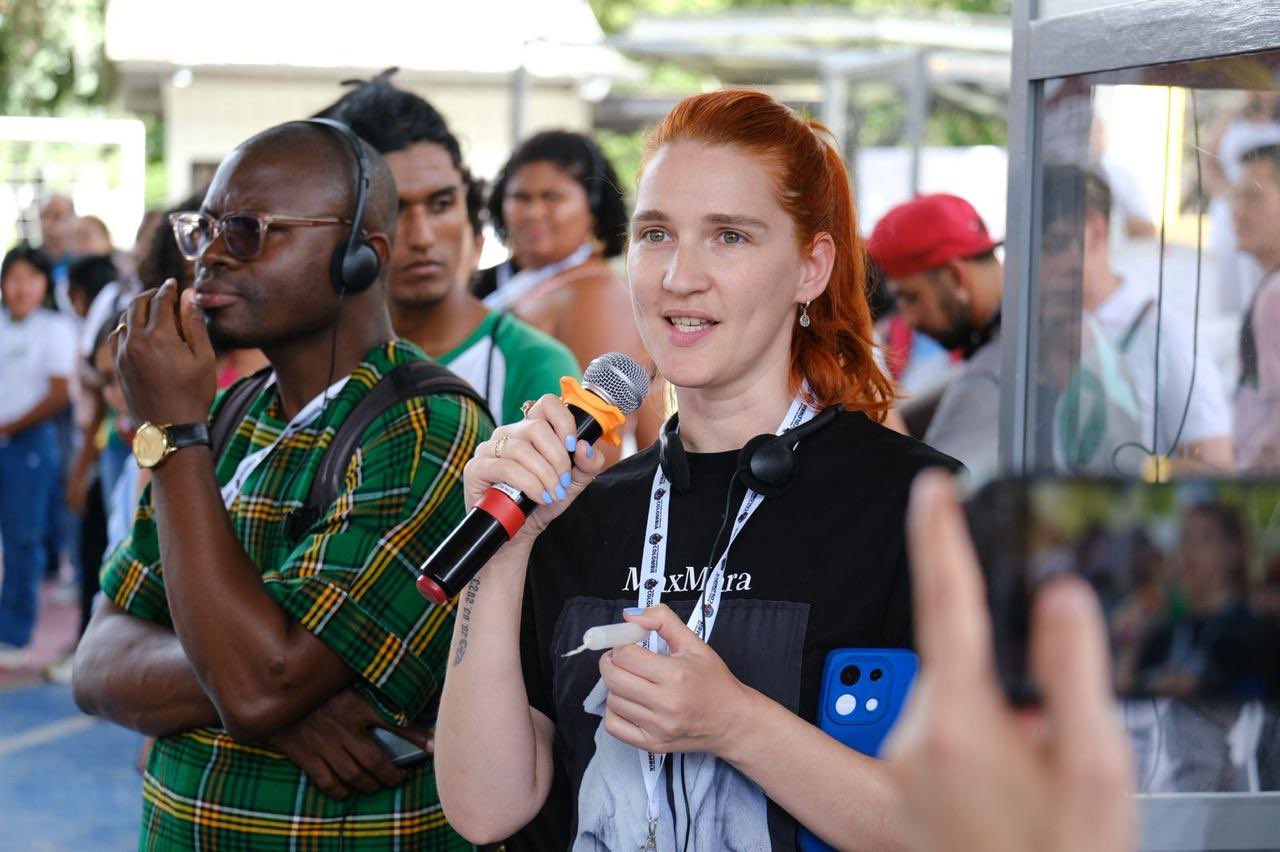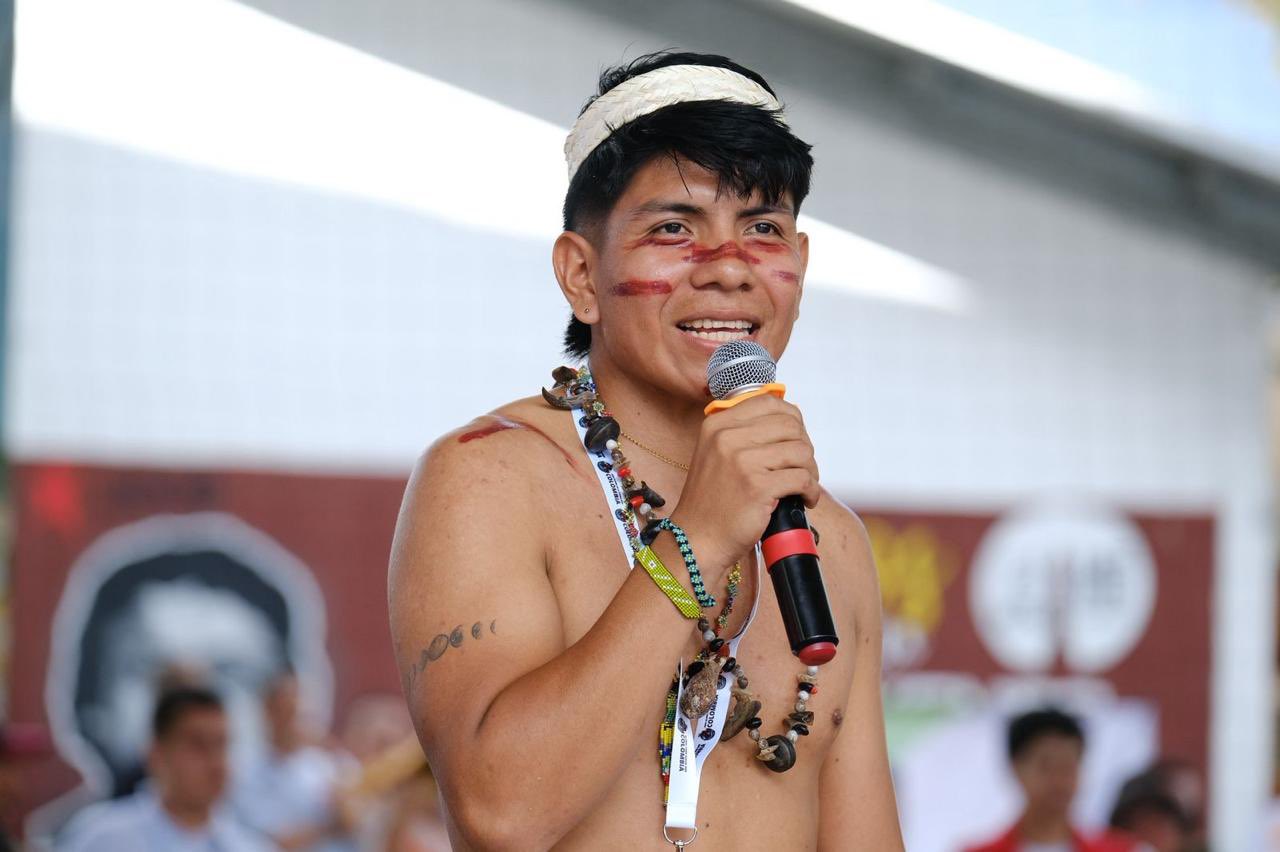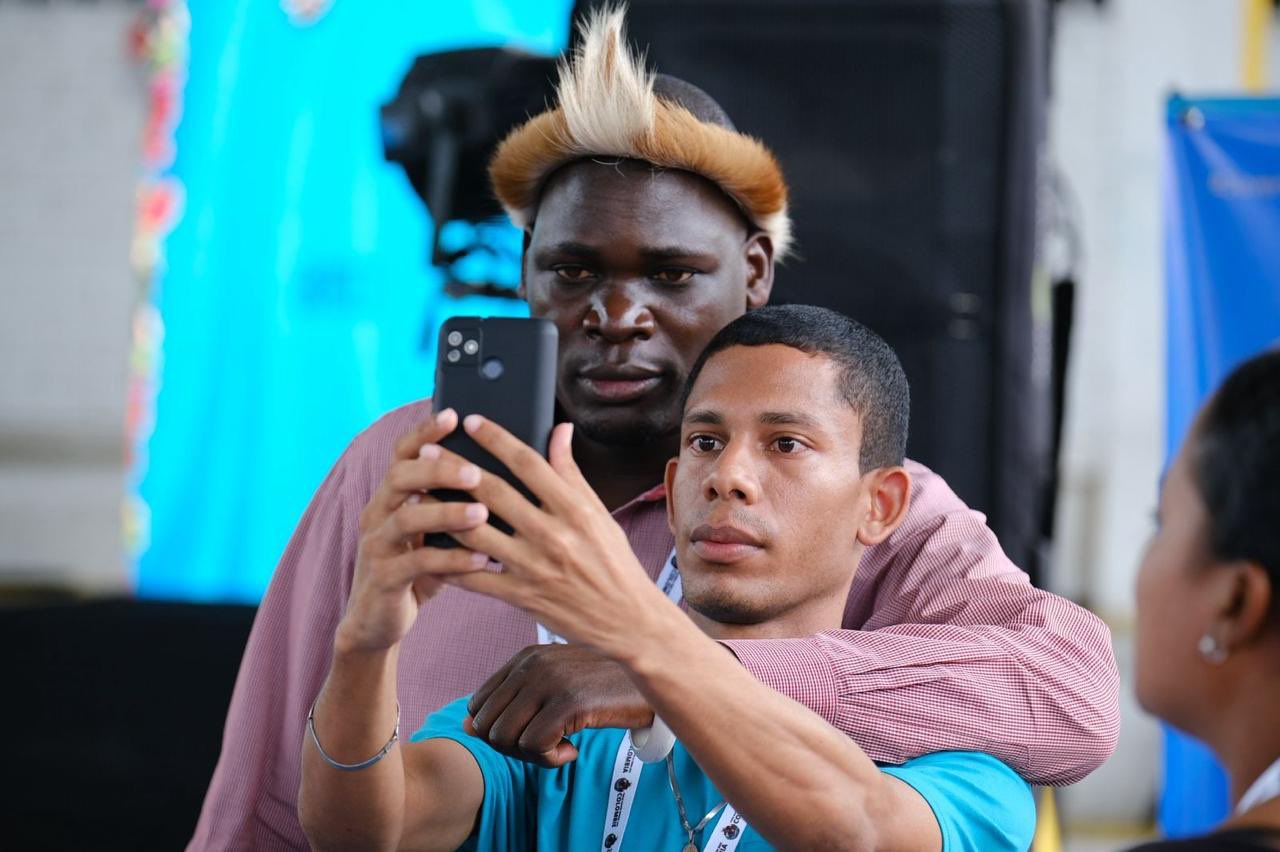Young people from around the world came to Catatumbo to talk about land rights and prepare a global declaration.

In Ocaña, the gateway to the Catatumbo region, at least 70 young people from Colombia and other regions of the world, who have come from as far away as Malawi, Scotland, Germany, Indonesia, and India, are meeting this weekend to discuss the importance of their voices in discussions about land and territorial transformation.
The meeting is taking place within the framework of the Global Land Forum for Youth (GLFY), which will take place from June 12 to 14, 2025, at the Francisco de Paula University-Santander, Ocaña campus. This event seeks not only to promote the political participation of young people in decision-making spaces, but also to highlight Catatumbo as a strategic agricultural region for Colombia that has failed to fully explore its potential due to the conflict.
The GLFY is organized by the International Land Coalition (ILC); the Food and Agriculture Organization of Colombia (FAO); the Catatumbo Youth Network; and the New Society Corporation of the Northeastern Region of Colombia (Consornoc). The forum is also co-hosted by the Ministry of Agriculture; the European Union; and the Center for Research and Popular Education (Cinep/PPP). It is made possible thanks to the support of the Diocese of Ocaña, the Mayor's Office of Ocaña; the Association of Municipalities of Catatumbo, the Province of Ocaña, and Southern Cesar; the Ocaña Chamber of Commerce; and the Francisco de Paula Santander University Ocaña campus.

Young people and FAO members during the Global Youth Forum for Earth in Catatumbo. Photo: FAO
In addition to creating international discussion networks on land rights, the participants also hope to develop a declaration to be presented to world leaders at the 10th Global Land Forum, which will take place from June 16 to 19, 2025, in Bogotá. This is the flagship event organized by the ILC every three years and constitutes the largest international gathering dedicated to addressing land and territory issues.
The event, which will take place next week in Bogotá, will bring together at least 800 delegates from around the world representing peasant, Afro-descendant, rural women's and youth, indigenous, and social movement organizations.
Given its relevance as a space for network generation, interlearning and advocacy in favor of land and territory rights in the world, the Ministry of Agriculture and Rural Development has included the 10th Global Land Forum as part of its 2025 Mobilization Agenda, leading up to the 2nd International Conference on Agrarian Reform and Rural Development (ICARRD+20).
At EL TIEMPO, we spoke with some of the young people who are currently at GLFY, participating in collaborative sessions, knowledge exchanges, cultural spaces, and workshops with the goal of drawing up a global roadmap to work on defending their rights to land and territory, as well as to contribute to caring for the planet in the face of the climate and biodiversity crises we are currently experiencing.
What young people are asking for: more participation and for their voices to be heard Mai Putri Evitasari, a young activist from Indonesia, came to the Global Land and Youth Forum in Colombia with a clear objective: to strengthen the fight for agrarian reform from an international perspective. “It's extraordinary to be here. Yesterday we had a full day learning about agrarian reform, and I was impressed by the open way it's discussed in Colombia, which is very different from what happens in Indonesia,” she said, noting that in her country “it's very difficult to talk about agrarian reform in public spaces, which makes this fight a long and arduous process.”
Mai appreciated the opportunity to meet with young people from around the world to exchange experiences and build a global movement. The young activist noted that Indonesia had already hosted the event in 2018, and that it resulted in a presidential decree that, although imperfect, serves as a tool for struggle today.
"My hope is that from this forum in Colombia, we can build a grand idea or common path so that the implementation of agrarian reform is effective in all countries," she said. For her, this call should not remain theoretical, but rather become a concrete roadmap that engages all sectors.

The youth gathering is being held in the city of Ocaña, prior to the global meeting in Bogotá. Photo: FAO
For his part, Megha Rajeshkumar Sheth, a 28-year-old from India and representative of the South Asia Pastoralist Alliance (SAPA), emphasizes that his main motivation for attending the forum was the exchange of knowledge. “My main objective in coming here is to share my experiences and learn from yours,” he said.
For her, spaces like this foster mutual learning and strengthen the global fabric of young people with common causes. In light of the political pronouncement that will be forged at the meeting, Megha emphasized the need to highlight youth leadership with a regional focus. "Young people from indigenous communities, women, peasants, and small landowners should be represented at the global forum," she said.

Food systems transformation and fair energy transition are among the forum's topics. Photo: FAO
For his part, Joshua James Bignall, a 35-year-old Scotsman, sees this forum as an opportunity to build solidarity networks among young people facing similar challenges around the world. “We want to collaborate and learn from each other… find ways to work together to address land access, political inaction, and the purchase of land by corporate interests,” he explained.
Regarding the statement young people will make to world leaders next week in Bogotá, Bignall emphasized the need to listen to the voices of young people, regardless of what is said: "We are a large and powerful group... we have a very important role to play in the future, and our voice must be heard."
On the other hand, Bartholomew Shaba, who comes from Malawi, says he came to Colombia seeking knowledge from other organizations and actors. "I'm sure that when we return to Malawi, we'll be able to apply those experiences," he said.
For him, it's important that those present take advantage of the forum's lessons to make an impact in their communities. "What remains is to seize this opportunity and put the lessons into practice," he said. Regarding the political statement the young participants are preparing, Shaba called on world leaders to recognize the strategic role of youth.
"We are going to advocate and lobby so that we are not seen just as young people, but as an important asset in the community," she stated. In her view, young people should be considered "engineers of change," especially in relation to land rights and rural development.

Forum participants also seek to create networks for discussion and political impact. Photo: FAO
Meanwhile, Dinah Ridadiyanah, a 27-year-old Indonesian woman, asserts that one of the main objectives of the meeting must be to move toward concrete agreements on land rights and the role that youth can play in their defense. “This is the first time I've left the country, and talking about land rights with so many young people from different backgrounds and countries is very important to me. I hope that after this, we can make concrete decisions about what we can do for a better and more inclusive world,” she noted.
In the political declaration they are preparing for world leaders, Dinah advocates for collaborative work among youth as a way to strengthen movements for territorial justice. “It's very important that we have a transfer of knowledge between our contexts. This way, we build stronger bonds and learn from each other,” she explained. In her view, this network of youth solidarity can be key to imagining and building “a more inclusive life for all.”
Finally, the young Indian Janmejay Singh insisted that it is essential to build bridges with local youth to create joint processes of social transformation. Singh wants to "find synergies and see how we can develop things together, create together," emphasizing forms of activism, mobilization, and collaborative work that address issues such as violence, poverty, climate change, and the need for agrarian reform.
"We want young people to have the right to work, to own land, to inherit a land that isn't burning due to violence or climate change," he concluded.
Environment and Health Journalist
eltiempo





